Divergent Series: Insurgent - A Simplified Adaptation
A significantly simplified adaptation of the second novel in the “Divergent” series, Insurgent throws out the baby with the bathwater.
Following their escape from the city, Tris (Shailene Woodley), Four (Theo James), and their companions seek refuge with the Amity faction. However, their respite is short-lived. Forces loyal to the Erudite faction, which has seized power, soon track them down, forcing them to hop onto another train. This time, their destination is the sanctuary of the “factionless,” led by Evelyn (Naomi Watts), Four’s mother, who faked her death to escape her abusive husband. Meanwhile, Erudite leader Jeanine (Kate Winslet) is trying to unlock a device containing a message from the city’s founders, but only a “pure Divergent” capable of passing the virtual simulations of all five factions can access it.

While the film is set in a post-apocalyptic Chicago, it was primarily filmed in Atlanta, Georgia.
Lost in Translation: From Page to Screen
What do readers expect from a book with the “clever” title Insurgent? Obviously, an “insurgency.” That is, a sustained conflict between rebels and the government (specifically, a military-scientific junta that has seized power), during which the young protagonists gain combat experience and gradually transform from “green” soldiers of the Revolution into seasoned commanders who dictate the terms of engagement.
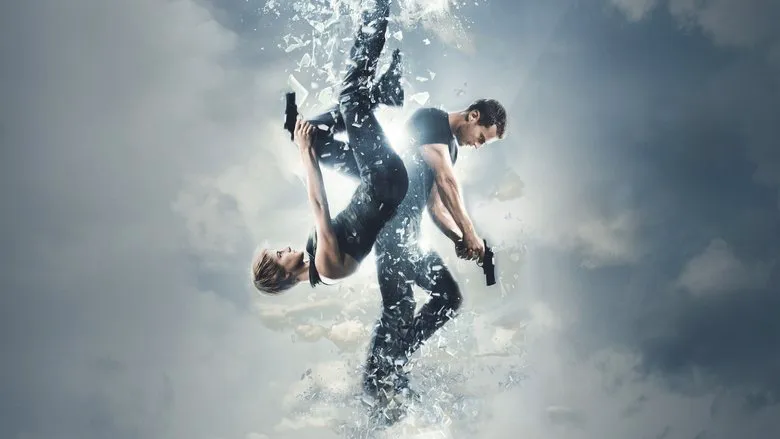
Neil Burger, the director of Divergent, did not direct the second film because work on it began while Burger was still finishing the first film in the series.
We saw something similar in Episodes V and VI of Star Wars, and Veronica Roth’s second book in the “Divergent” series is structured in a similar way, although it, of course, describes completely different events. While at the beginning of Insurgent, Tris and Four are hiding from enemies and fleeing, in the book’s culmination, Tris and her old and new allies infiltrate Erudite headquarters and seize it, freeing prisoners and gaining access to records that Jeanine was trying to hide from them. “A girl becomes a woman” – both sexually and militarily.
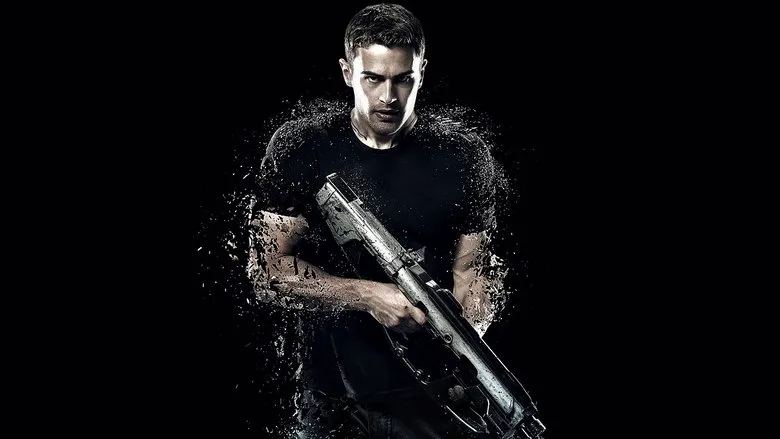
Why are we carelessly spoiling? Because this is a spoiler for the book, not the film. The film adaptation of Insurgent is structured differently than Roth’s novel. Robert Schwentke’s film significantly simplifies and shortens the plot, which leads to Tris experiencing virtually no growth throughout the story. The heroine leads no one, devises no “cunning plans,” and makes no real attempt to unite the factions against the junta. The same goes for Four. Although the film states that he is the leader of the Dauntless opposing the Erudite, this is not felt at all, because there are almost no scenes in the film where he behaves like a commander. Yes, both leading characters display personal heroism, but that’s what Dauntless training is for – to bravely rush into battle. And we know from the first film that Tris and Four are relentless in hand-to-hand combat and in shootouts. Therefore, their behavior in the second film is just a boring repetition of what they’ve already done, without any forward movement.
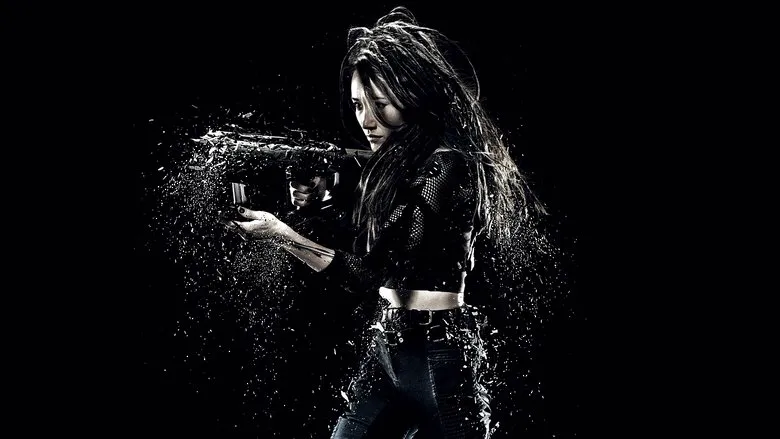
Missed Opportunities and Familiar Foes
Perhaps the film offers them fundamentally new, interesting opponents? No. The villains in Insurgent are all the same, already well-known to us, with all their previous strengths and weaknesses. Perhaps the situation is brightened by new positive characters? No, because even the role of Evelyn is, in essence, just an introduction to a character who does little in the film Insurgent, but who will likely be a key character in Allegiant, the planned two-part conclusion to the film series. In fact, Naomi Watts’ participation in the film amounts to an extended cameo.
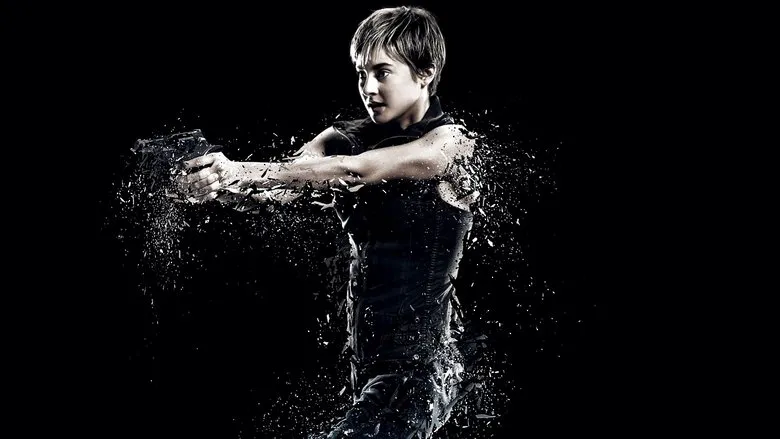
What about cool stunts and large-scale battle scenes? With the exception of a couple of spectacular but knowingly implausible virtual fragments, the battles in Insurgent are short, intimate, and rather pathetic, albeit fierce – like the hand-to-hand combat on the train when Tris and Four are attacked by a pack of “factionless.” When sizable units go into battle, they, if the film is to be believed, win instantly, without a prolonged assault or exciting battles. It seems someone with a German surname spent the entire budget on a computer-generated decoration of a burning house flying through the air, so there would be something to show in the trailer…
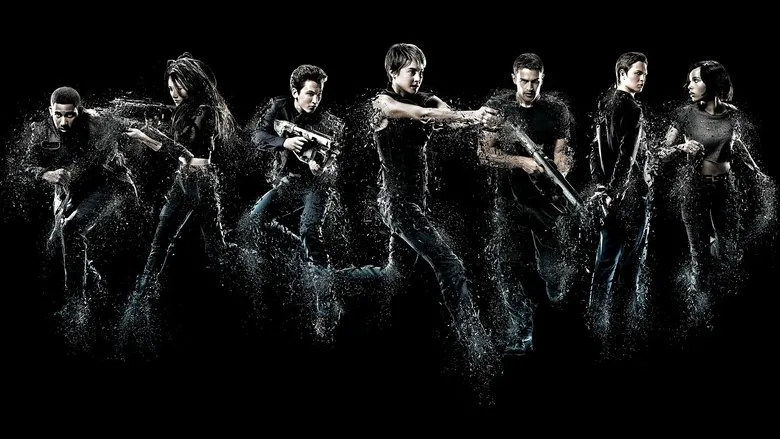
A Drama of Conscience, Not Rebellion
What do the characters do if they only fight occasionally and briefly? They wander around the factions almost like tourists, make out in corners, discuss Four’s previous family life (the guy is very resentful of his mother for leaving him with a villainous father), publicly confess their feelings to each other… Tris, meanwhile, is deeply tormented by guilt because innocent people died for her and at her hand, and these experiences turn out to be almost the only dramatic essence of the film. Viewers came to the theater for “insurgency,” and they are offered a heroine who can’t forgive herself. Will Tris forgive herself in Insurgent, or will this question live on until Allegiant? How fresh! How exciting! How blockbuster-like!

Of course, one could say that this is a female, not a male film, and that the heroine’s mental torment is more interesting to female viewers than the military-political vicissitudes of Roth’s book. But then it would be worth constructing a love triangle so that girls could worry about Tris’s personal life. Insurgent, however, is only good in a romantic sense because Four continues to confirm that he is a real man, sincerely loving Tris and always ready to stand up for her and support her. However, the steadfastness of the characters’ feelings deprives their relationship of drama and development. Like some other plot lines in Insurgent, the romantic line seems not a continuation of Divergent, but its protracted epilogue.
And what about the mysterious box with a message from the founders, which only a “super-divergent” like Tris can open – if the Erudite manage to catch her and attach her to a rather sinister device? This plot device is partly an invention of the screenwriters, and an unsuccessful invention, since it turns Tris into Jeanine’s guinea pig. In the book, similar scenes are located closer to the beginning of the narrative, and they show that the heroine at this plot point is not yet strong enough to lead her own game, as at the end of the novel. In the film, these are the culminating scenes, and it turns out that Tris remains a toy in the hands of her opponent and other adults – both those who run the city and those who once created it – until the very end. And it doesn’t matter that the girl passes the final test of her own free will – she still only takes the bar that others have set for her. We don’t need such an insurgent!